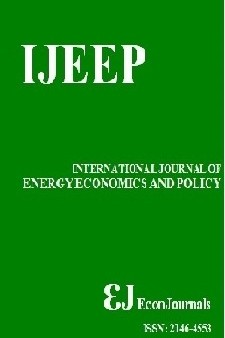Energy Efficiency Standards and Labels for Cold Appliances in Jordan
Energy Efficiency Standards and Labels for Cold Appliances in Jordan
energy efficiency standard, appliances, Jordan.,
- Başlangıç: 2011
- Yayıncı: İlhan ÖZTÜRK
The Lebanese Pre-salt Oil and Gas Production Economic Challenges and Revenues
İsmail Tijjani IDRİS, Sabri NAYAN
Energy Efficiency Standards and Labels for Cold Appliances in Jordan
Alwiyah Abd Alfattah, Ahmad Sakhrieh, Ahmed Al-Ghandoor
Ivan A. Kapitonov, Vladimir I. Voloshin, Irina V. Zhukovskaya, Aleksei A. Shulus
Lucky Nugroho, Wiwik Utami, Taufik Akbar, Willy Arafah
Merve Karacaer-Ulusoy, Ayhan Kapusuzoglu
Yusuf Opeyemi Akinwale, Ibikunle Olalekan Ogundari
Transforming Waste Management Operations to Green Energy Initiatives: Opportunities and Challenges
Jy Shing Wu, H. K. Tseng, J. C. Ferrell, X. Liu
Energy Security, Trade and Transition to Green Economy in Africa
Opeyemi E. Akinyemi, Evans S. Osabuohien, Philip O. Alege, Adeyemi A. Ogundipe
